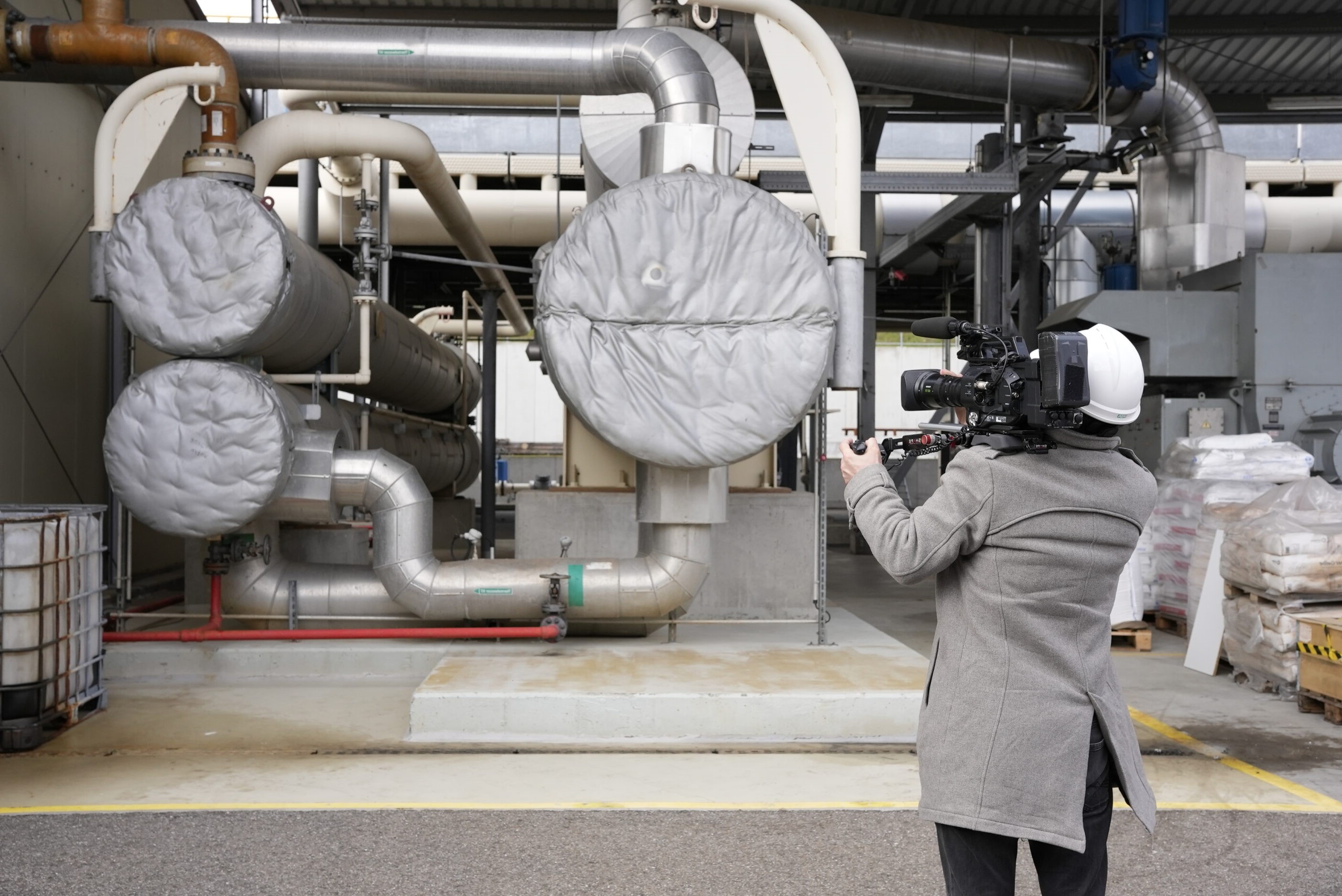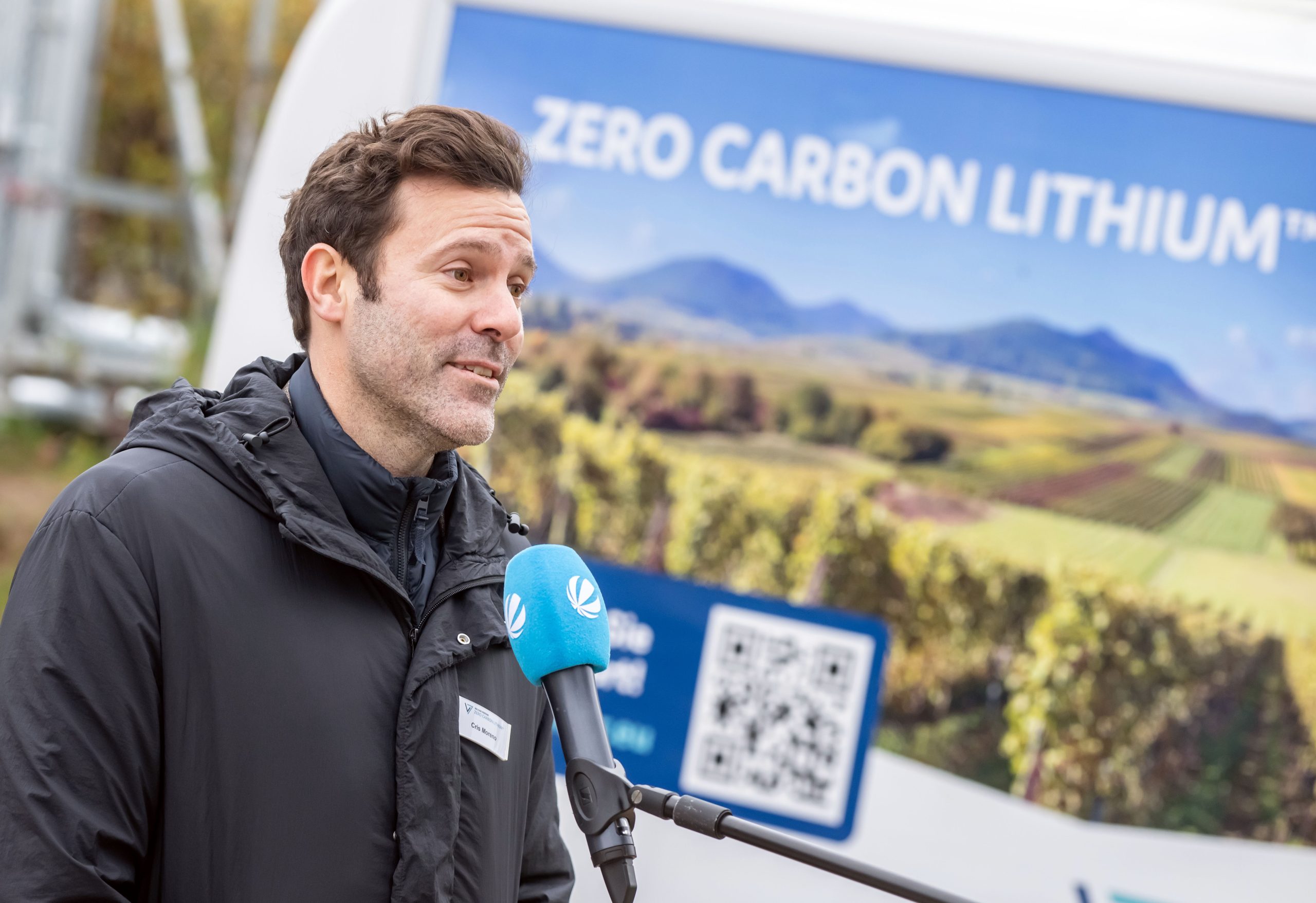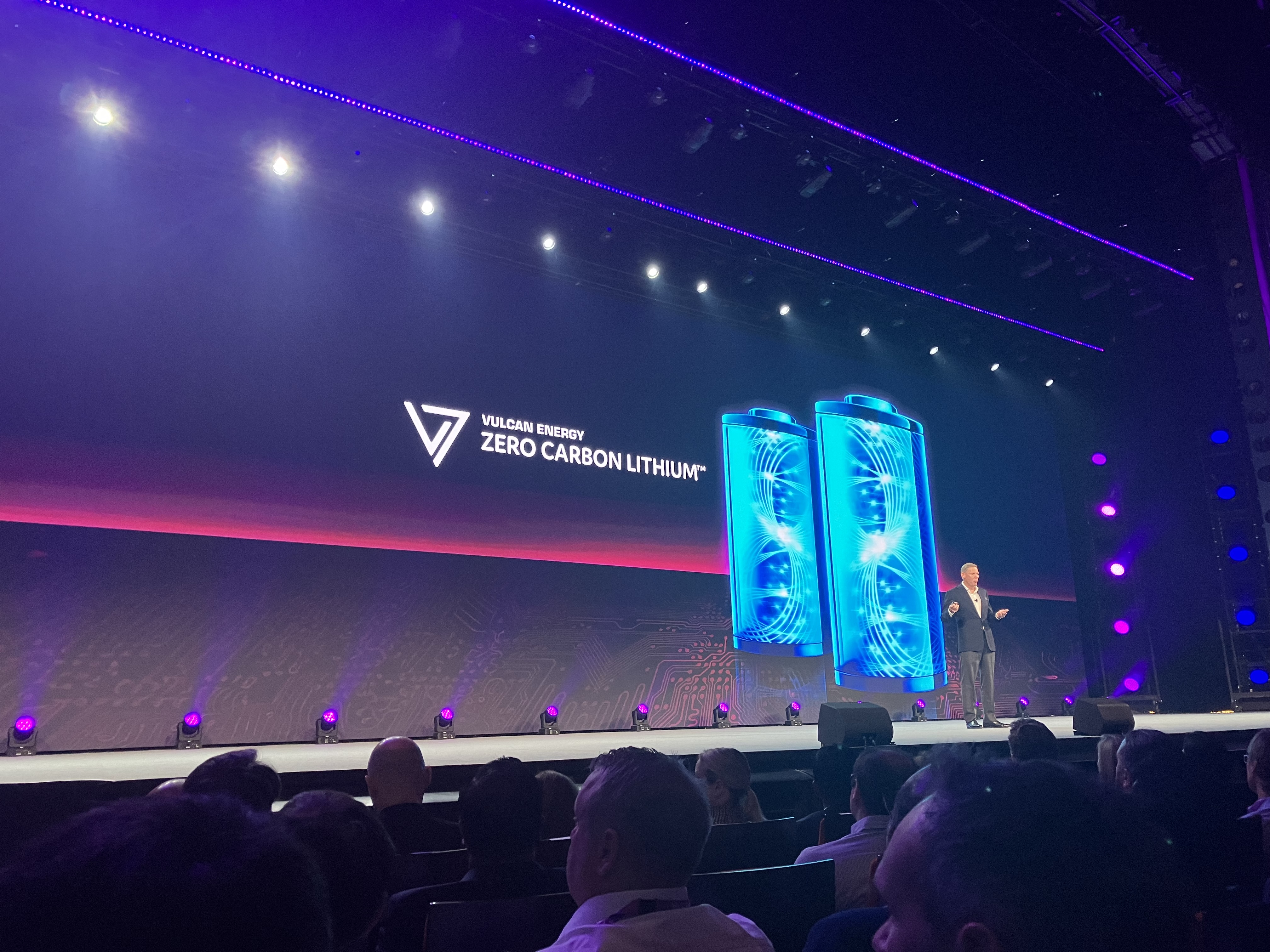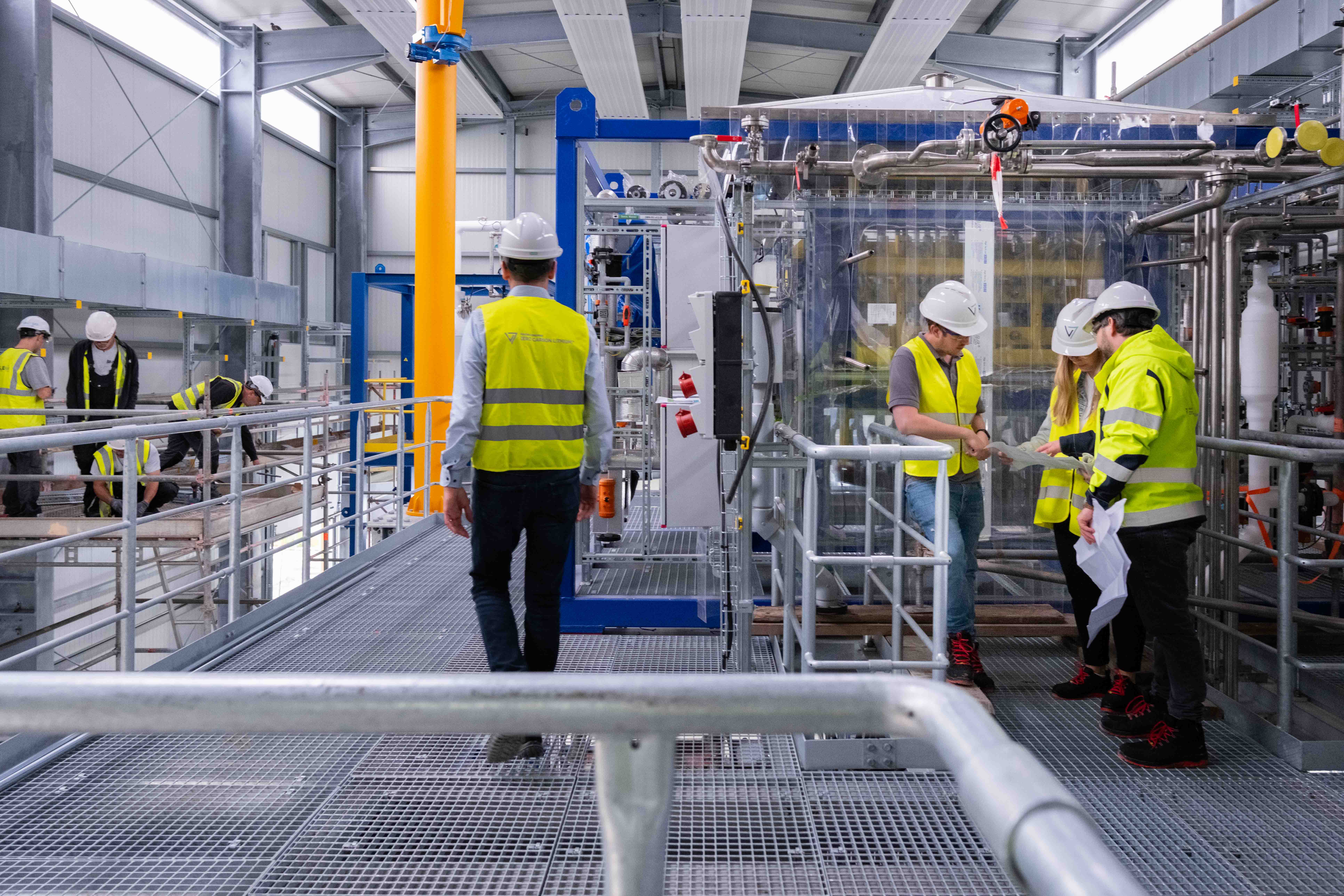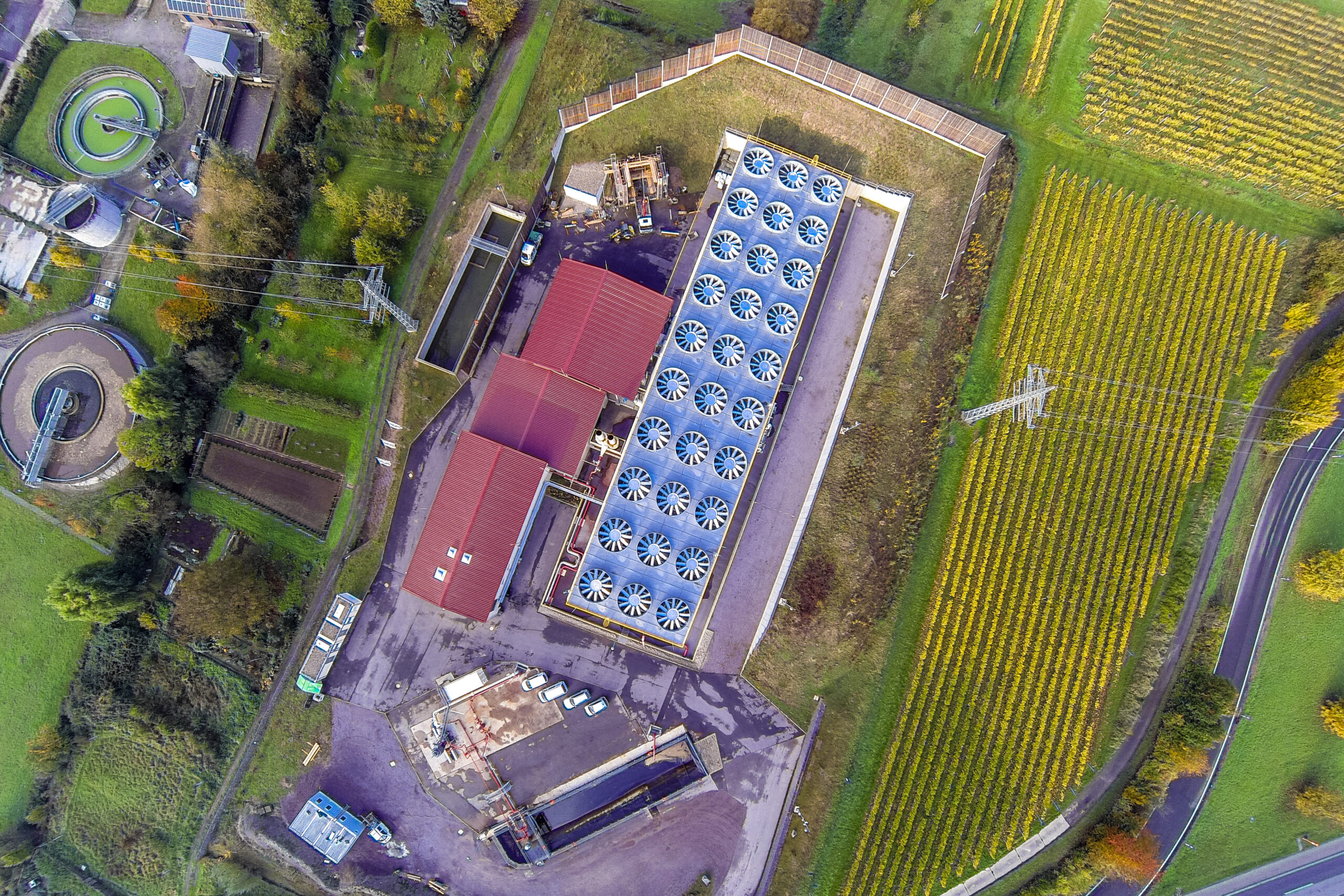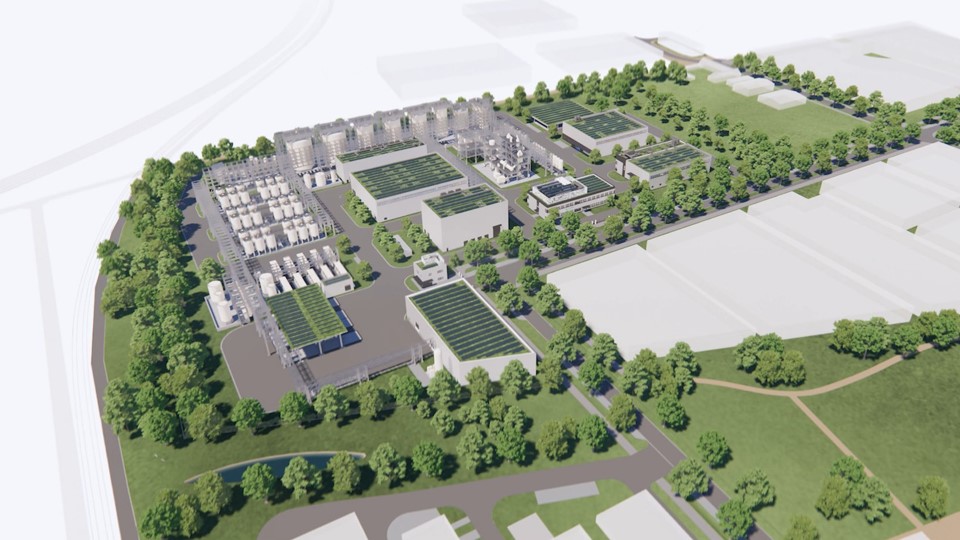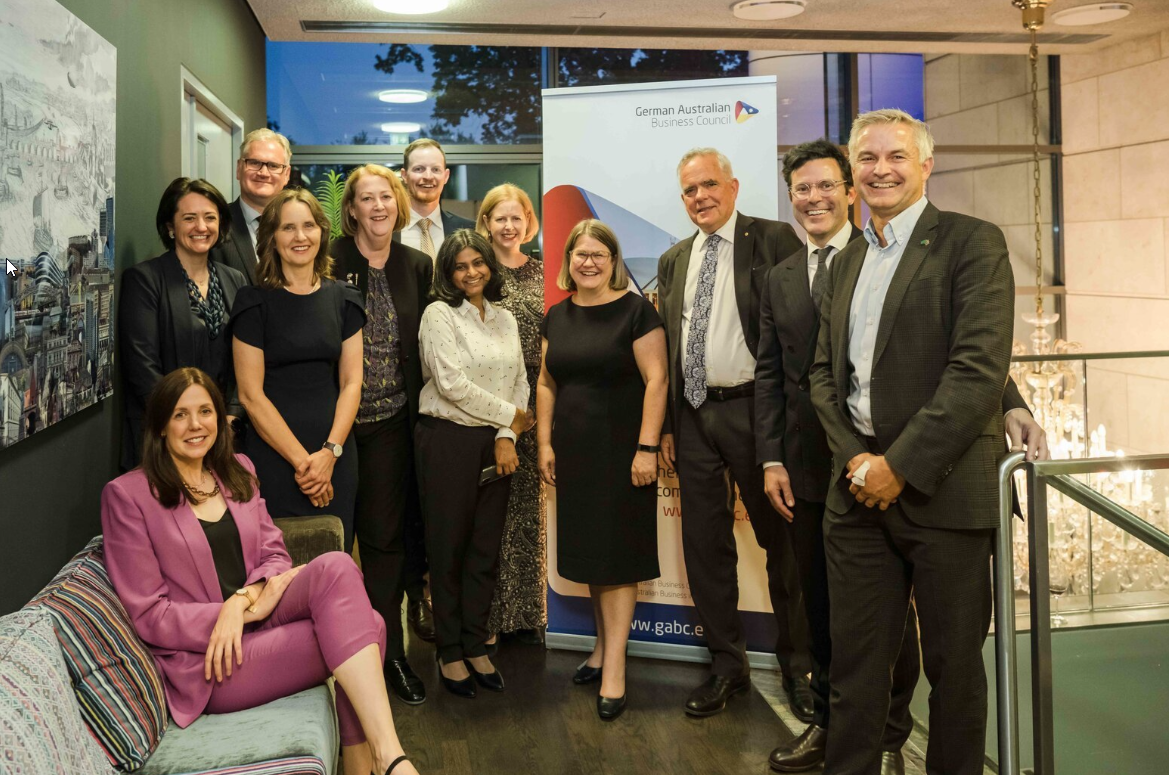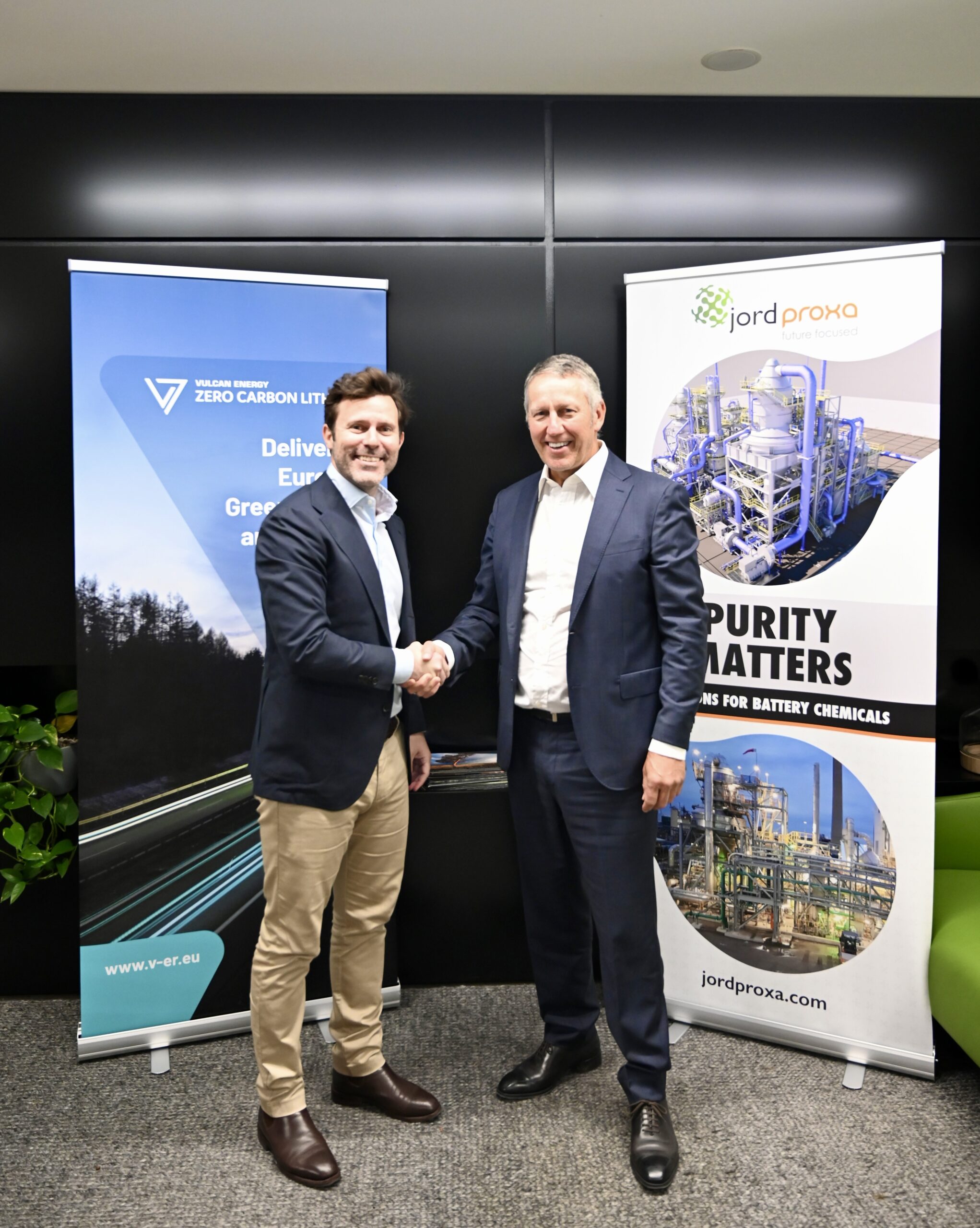Vulcan and JordProxa Partner for Phase One of ZERO CARBON LITHIUM™ Project
Karlsruhe, 23 May 2024. Vulcan Energie Ressourcen GmbH (Vulcan) and JordProxa Pty. Ltd. (JordProxa) have entered into a Memorandum of Understanding (MoU) for the technology and process components for the Lithium Extraction and Central Lithium Plants of Vulcan’s Phase One integrated renewable energy and ZERO CARBON LITHIUM™ Project (the Project).
JordProxa, an Australian headquartered international company, is a leader in custom water processing, crystallisation and evaporation plant and systems, playing a key role in meeting the challenges of high purity, sustainability, and value to meet the increasing demand for lithium-ion and other battery metals. JordProxa has over 250 project references globally including major battery grade projects for blue chip clients in Finland, Australia, Latin America and Canada.
The partnership between Vulcan and JordProxa as the selected technology partner is geared toward the joint objective of delivering Vulcan’s Phase One Project on time with improved cost performance and optimisation for the lithium process portion of the project development.
Leveraging JordProxa’s expertise in resources and technology, the intent of the MoU is to enhance project processes and production, streamline delivery times, and optimise Vulcan’s project costs. Additionally, this MoU will facilitate early engagement with the EPCm contractor and the Main Electrical and Automation Contractor to clarify scope definition, boundary limits, design principles, standards, and interfaces. Design optimisation will be achieved by integrating JordProxa’s experience and utilising the capability, data and knowledge from Vulcan’s current pilot and optimisation plants.
Working closely with Vulcan’s German-based team, JordProxa will optimise the design basis and develop pricing proposals, project execution plans, and an interface management plan.
Beyond project completion, JordProxa’s commitment is intended to extend to operational support and continuous performance improvement initiatives throughout the plant’s lifecycle. This long-term commitment would ensure that Vulcan can rely on JordProxa’s support and expertise even after the Project is completed.
Vulcan MD and CEO, Cris Moreno stated, “I’m confident this MoU marks the beginning of a promising long-term partnership between Vulcan and JordProxa. We are delighted to join forces with JordProxa to deliver cutting-edge water processing, crystallisation and evaporation systems for Phase One of our integrated renewable energy and ZERO CARBON LITHIUM™ Project and beyond, underscoring our mutual dedication to innovation and sustainability.”
Director of JordProxa, Angus Holden stated, “Vulcan’s ZERO CARBON LITHIUM™ Project offers a breakthrough opportunity in sustainable lithium production. JordProxa’s MoU with Vulcan enables our joint teams to work as partners towards the common goal of sustainable lithium. We look forward to supporting Vulcan in realising this milestone project”.
Upon completion of the MoU scope by 31 October 2024, Vulcan and JordProxa aim to advance negotiations towards a definitive agreement for the execution of Vulcan’s Phase One Lithium Extraction and Central Lithium Plants of the ZERO CARBON LITHIUM™ and Renewable Energy Project.
About Vulcan
Founded in 2018, Vulcan’s purpose is to empower a carbon neutral future, through the co-production of lithium, heat and renewable energy from geothermal brine. Vulcan is focused on delivering the world’s first integrated renewable energy and ZERO CARBON LITHIUM™ Project. By adapting existing technologies to efficiently extract lithium from geothermal brine, Vulcan aims to deliver a local source of sustainable lithium for Europe, built around a carbon neutral strategy with exclusion of fossil fuels. Already an operational renewable energy producer, Vulcan will also provide renewable electricity and heat to local communities. Vulcan’s combined geothermal energy and lithium resource is the largest in Europe, with licence areas focused on the Upper Rhine Valley, Germany. Strategically placed in the heart of the European electric vehicle market to decarbonise the supply chain, Vulcan is rapidly advancing the ZERO CARBON LITHIUM™ Project to target timely market entry, with the ability to expand to meet the unprecedented demand that is building in the European markets. Guided by our Values of Climate Champion, Determined and Inspiring, and united by a passion for the environment and leveraging scientific solutions, Vulcan has a unique, world leading scientific and commercial team in the fields of lithium chemicals and geothermal renewable energy. Vulcan is committed to partnering with organisations that share its decarbonisation ambitions and has binding lithium offtake agreements with some of the largest cathode, battery, and automakers in the world. As a motivated disruptor, Vulcan aims to leverage its multidisciplinary expert team, leading geothermal technology and position in the European EV supply chain to be a global leader in producing carbon neutral lithium. Vulcan aims to be the largest, most preferred, strategic supplier of lithium chemicals and renewable power and heating from Europe, for Europe; to empower a carbon neutral future.
About JordProxa
JordProxa delivers custom engineered solutions to produce a wide range of ultra-pure battery chemicals by integrating advanced water treatment, evaporation and crystallization technologies. Our experience, spanning over 45 years in diverse industries enables us to offer cost effective and robust solutions that incorporate the latest advances in technology.
Head quartered in Sydney, Australia, JordProxa operates throughout Europe, North & South America, Middle East, Africa and Southeast Asia. It offers the complete range of capabilities and services from project inception to completion, including R&D, testing, on-going operational support and aftermarket support.
Through on-going research and development, both in-house and through tertiary academic and research institutions, the company is able to continuously meet and exceed the ever-increasing purity needs of lithium-ion batteries and other energy metals,
We leverage an established network of fabrication alliances and decades of experience with modular plant design. This allows us to deliver key plant assemblies that are extensively tested and proven in the workshop before they are dispatched and installed on site. This helps us optimise project delivery time whilst minimising the project risk.
Media inquiries:
Annabel Roedhammer
Vice President Communications
aroedhammer@v-er.eu
+49 (0) 1511 410 1585
